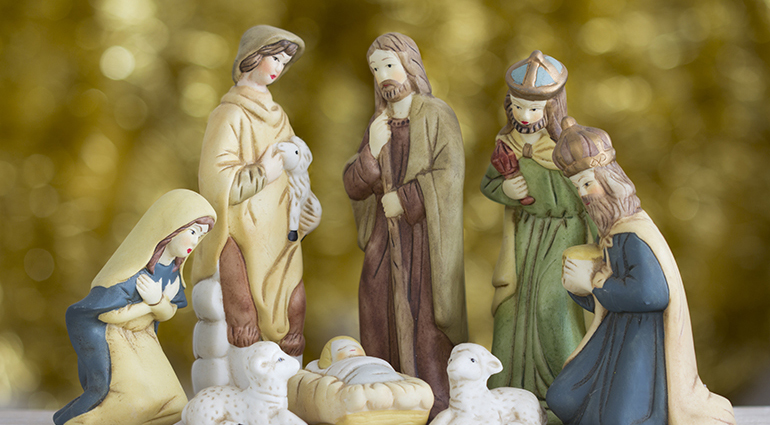Traditions and Christmas
I bring you good news that will cause great joy . . . a Saviour has been born to you. Luke 2:10–11
As you savor a candy cane this Christmas, say “danke schön” to the Germans, for that confectionary treat was first created in Cologne. As you admire your poinsettia, say “gracias” to Mexico, where the plant originated. Say “merci beaucoup” to the French for the term noel, and give a “cheers” to the English for your mistletoe.
But as we enjoy our traditions and festivities of the Christmas season—customs that have been collected from around the world—let’s save our most sincere and heartfelt “thank you” for our good, merciful, and loving God. From Him came the reason for our Christmas celebration: the baby born in that Judean manger more than 2,000 years ago. An angel announced the arrival of this gift to mankind by saying, “I bring you good news that will cause great joy . . . a Savior has been born to you” (Luke 2:10–11).
This Christmas, even in the light of the sparkling Christmas tree and surrounded by newly opened presents, the true excitement comes when we turn our attention to the baby named Jesus, who came to “save his people from their sins” (Matt. 1:21). His birth transcends tradition: It is our central focus as we send praises to God for this indescribable Christmas gift.
May the God of hope fill you with all joy and peace as you trust in him. Romans 15:13
INSIGHT
The angel Gabriel told Mary, “[Jesus] will be called the Son of the Most High. The Lord God will give him the throne of his father David” (Luke 1:32–33). The angel who appeared to Joseph said, “What is conceived in her is from the Holy Spirit. . . . [Y]ou are to give him the name Jesus, because he will save his people from their sins” (Matt. 1:20–21). Mary and Joseph knew Jesus would be the Messiah, and as faithful Jews they would have known the Messiah was to come from Bethlehem, David’s hometown. Perhaps when Joseph was ordered to Bethlehem for the census he thought, So that’s how God is going to get us to Bethlehem!
How does reflecting on the miraculous events that led to the birth of Jesus fill you with renewed awe and wonder?
Adapted from Mystery of the Manger by John Greco. Read more at discoveryseries.org/hp161.




